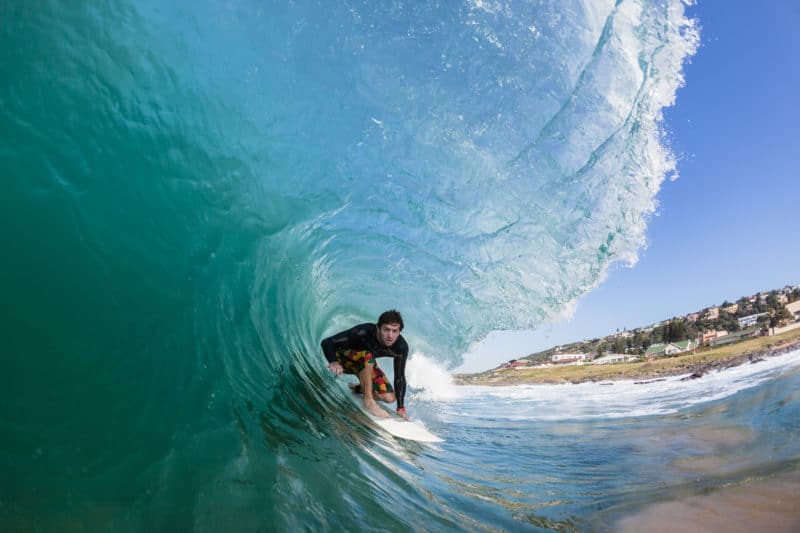Surf’s up in Sydney and along Australia’s east coast as school break, the holiday season, warm weather and consistent swells align to make surfing especially popular. In fact, the stretch from Christmas through the end of January is the busiest time of year for surfing, according to Australia’s Surfunation.
Of course, the extra activity adds up to an increased risk for injuries. These injuries can include dental trauma as well as damage to the temporomandibular joints, the joints that connect the jaw to the skull and lend their name to the painful temporomandibular joint disorder (TMJ).
Point Ache: Surfing and TMJ
Strains and fractures are among the most common surfing-related orthopedic injuries, and the head and face are the most common sites for fractures. When it comes to TMJ, the damage and resulting discomfort may be the result of physical impact or repetitive stress.
Boards are a major source of surfing injuries, and when they strike the face in a wipeout or bounce-back they can displace the disc within the jaw joint that aids in jaw movement, or fracture the jawbone itself. Surfing also involves repetitive motions that progressively strain your neck and jaw.
The results of both circumstances often include jaw pain, difficulty finding a comfortable resting position for the jaw, neck and shoulder soreness, and chronic headaches. Depending on the source and extent of injury to the temporomandibular joint, TMJ’s symptoms may subside; they may also worsen or be accompanied by additional symptoms such as ringing in the ears or pain extending down the back.
Bide the Wild Surf: TMJ, Snorkeling and Scuba Diving
TMJ is also a risk in other popular watersports, including snorkeling and scuba diving. If you have an ill-fitting mouthpiece or clench your mouthpiece, the tension on the jaw joints and muscles can lead to lingering discomfort.
The position of your body while swimming or diving for extended periods can further strain your jaw and neck. According to the Divers Alert Network, 15 to 20 percent of regular snorkelers and scuba divers are believed to suffer from TMJ.
Chew Crush: Treating TMJ
If the root of your TMJ discomfort is strain on or damage to a temporomandibular joint, the pain may worsen and eventually impact your ability to eat and speak comfortably. A knowledgeable neuromuscular dentist can recommend an effective treatment based on the specific source.
For many patients, this involves the use of an oral device similar to an athletic mouthguard. This form-fitting appliance is designed to hold your jaw in an optimal position and eliminate unnecessary stress on the jaw joints and muscles. Other patients may benefit from correcting an underlying bite condition or physical injury.
Sydney neuromuscular dentist Dr. David Lee has extensive success helping patients find lasting relief from TMJ pain. If you experience jaw pain, headaches or other TMJ symptoms, please call My Hills Dentist at (02) 9686 7375 to schedule your consultation at our Baulkham Hills office.


